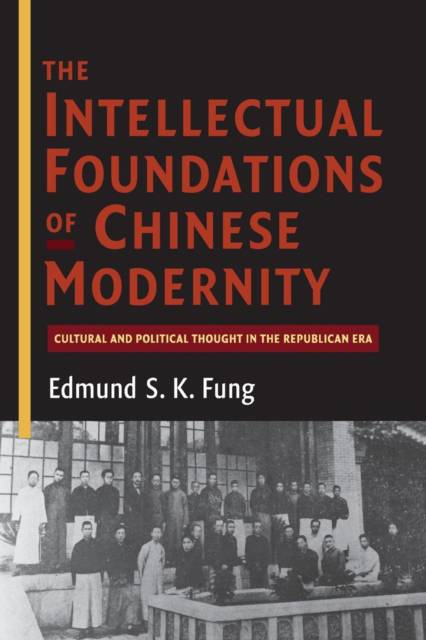
- Afhalen na 1 uur in een winkel met voorraad
- Gratis thuislevering in België vanaf € 30
- Ruim aanbod met 7 miljoen producten
- Afhalen na 1 uur in een winkel met voorraad
- Gratis thuislevering in België vanaf € 30
- Ruim aanbod met 7 miljoen producten
Zoeken
The Intellectual Foundations of Chinese Modernity
Cultural and Political Thought in the Republican Era
Edmund S K Fung
Paperback | Engels
€ 47,95
+ 95 punten
Uitvoering
Omschrijving
In the early twentieth century, China was on the brink of change. Different ideologies - those of radicalism, conservatism, liberalism, and social democracy - were much debated in political and intellectual circles. Whereas previous works have analyzed these trends in isolation, Edmund S. K. Fung shows how they related to one another and how intellectuals in China engaged according to their cultural and political persuasions. The author argues that it is this interrelatedness and interplay between different schools of thought that are central to the understanding of Chinese modernity, for many of the debates that began in the Republican era still resonate in China today. The book charts the development of these ideologies and explores the work and influence of the intellectuals who were associated with them. In its challenge to previous scholarship and the breadth of its approach, the book makes a major contribution to the study of Chinese political philosophy and intellectual history.
Specificaties
Betrokkenen
- Auteur(s):
- Uitgeverij:
Inhoud
- Aantal bladzijden:
- 336
- Taal:
- Engels
Eigenschappen
- Productcode (EAN):
- 9781107547674
- Verschijningsdatum:
- 28/04/2016
- Uitvoering:
- Paperback
- Formaat:
- Trade paperback (VS)
- Afmetingen:
- 152 mm x 229 mm
- Gewicht:
- 449 g

Alleen bij Standaard Boekhandel
+ 95 punten op je klantenkaart van Standaard Boekhandel
Beoordelingen
We publiceren alleen reviews die voldoen aan de voorwaarden voor reviews. Bekijk onze voorwaarden voor reviews.











